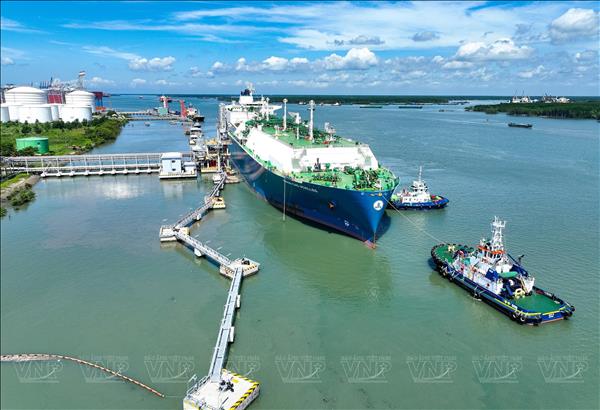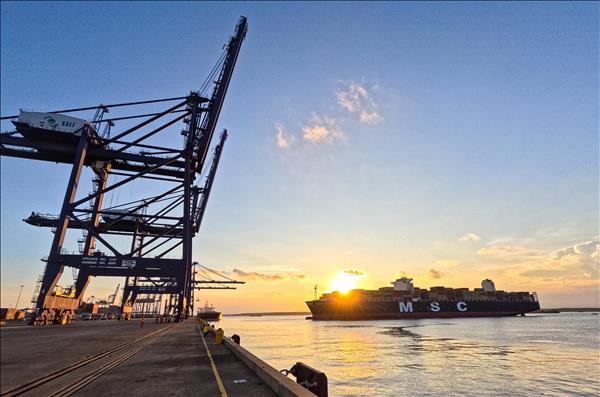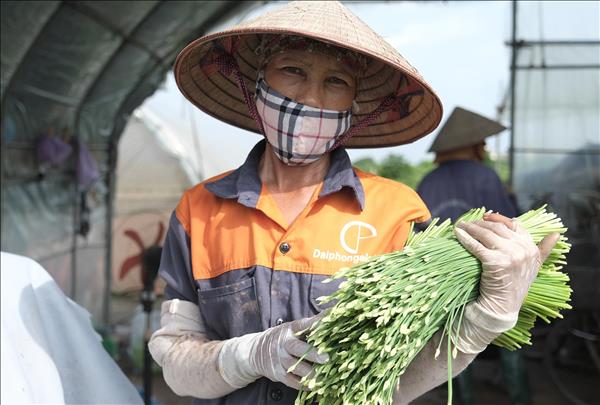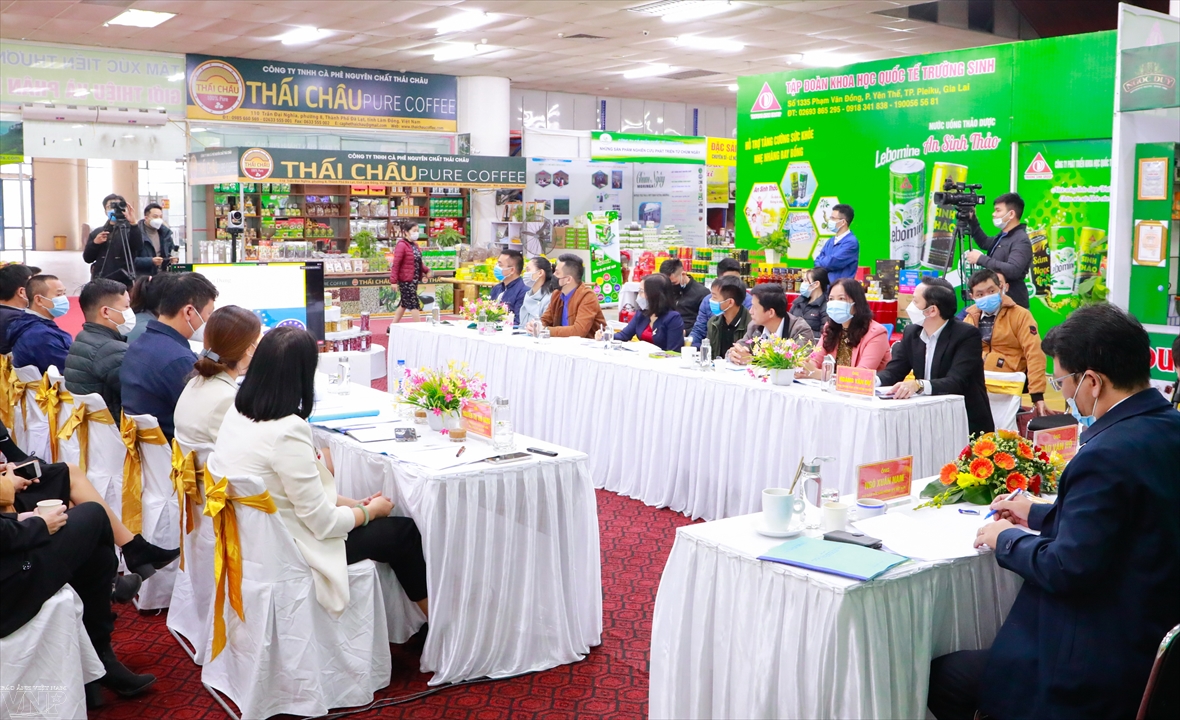In regards to economics, according to independent economic experts the pact is expected to help raise the country’s gross domestic product (GDP) by an additional 23.5 billion dollars in 2020 and 33.5 billion dollars in 2025. Under the deal, major markets such as the US, Japan and Canada will eliminate import taxes, creating an impetus for Vietnam’s exports, adding 68 billion dollars to the country’s total export earnings in 2025. The country’s key export sectors such as garment-textiles, footwear and fisheries are bound to see outstanding breakthroughs in these markets.
Vietnam will also have new opportunities afforded by the supply chain formed after the trade deal is put in place. The TPP countries represent 40% of the world’s economy and 30% of global trade, and involve major powers such as the US and Japan. TPP commitments in the fields of services and investment are expected to accelerate investment environment improvement and foreign investment attraction in Vietnam.
Vietnam will also have new opportunities afforded by the supply chain formed after the trade deal is put in place. The TPP countries represent 40% of the world’s economy and 30% of global trade, and involve major powers such as the US and Japan. TPP commitments in the fields of services and investment are expected to accelerate investment environment improvement and foreign investment attraction in Vietnam.
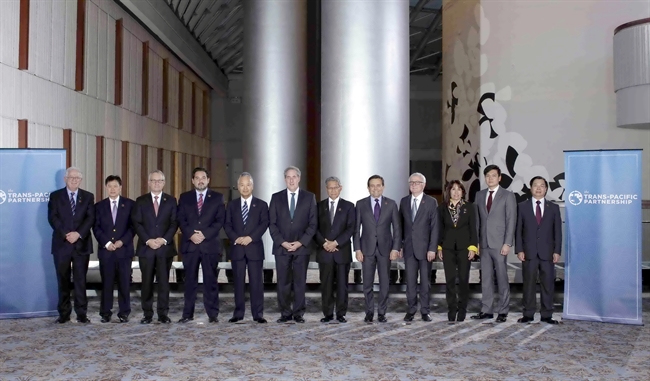
Trade ministers of the nations attended the TPP negotiation in Atlanta, the US. Photo: Reuters/VNA
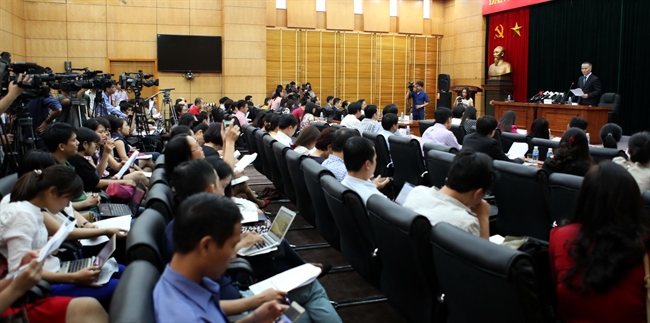
Head of Vietnam’s TPP negotiating delegation Deputy Minister of Industry and Trade Tran Quoc Khanh
chairs the press conference to inform TPP negotiation’s completion. Photo: Tran Viet/VNA
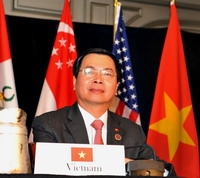
(Minister of Industry and Trade
Vu Huy Hoang) "According to independent economics experts, TPP will help the Vietnam’s GDP increase 23.5 billion dollars in 2020 and 33.5 billion dollars in 2025". |
With high standards on transparent governance and State apparatus performance, the agreement will motivate Vietnam to keep perfecting the socialist rule of law; speed up administrative reform; and combat corruption, extravagance and bureaucracy.
Socially, accelerated growth, thanks to the deal, will expand job opportunities and increase income and lower poverty rates. Economic development will also provide more resources to improve manpower quality and public health care. If there is a roadmap of reducing tax rationally together with a social welfare system is completed, Vietnam is capable of solving rising problems when it joins the TPP. Environmental commitments included in the TPP agreement will drive commercial liberalisation and investment attraction in an environmentally friendly fashion, helping Vietnam pursue sustainable growth.
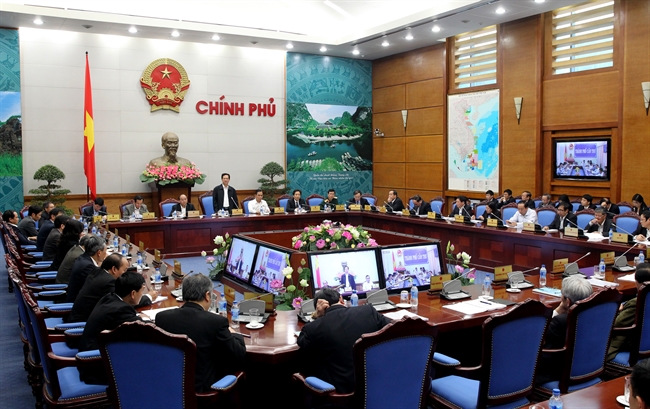
According to experts TPP will help Vietnam promote administrative reform.
In the photo: Prime Minister Nguyen Tan Dung chairs the online conference with provinces and cities
on renewing administrative reform. Photo: Duc Tam/VNA
TPP participation promises to bring huge advantages to Vietnam’s garment and textile industry. Photo: Kim Phuong/VNP
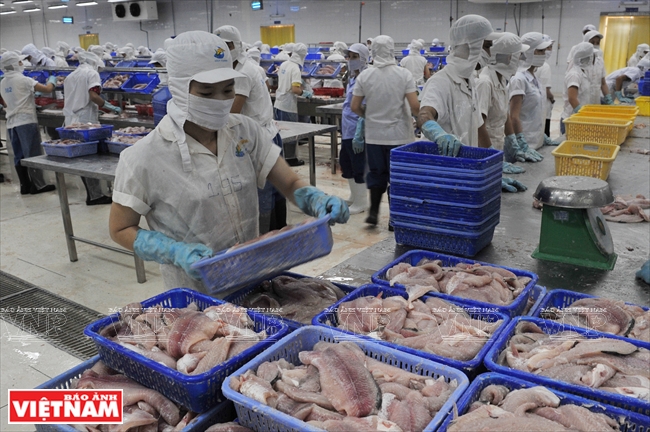
The seafood sector is predicted to see a considerable increase in terms of export turnover. Photo: VNP’s file
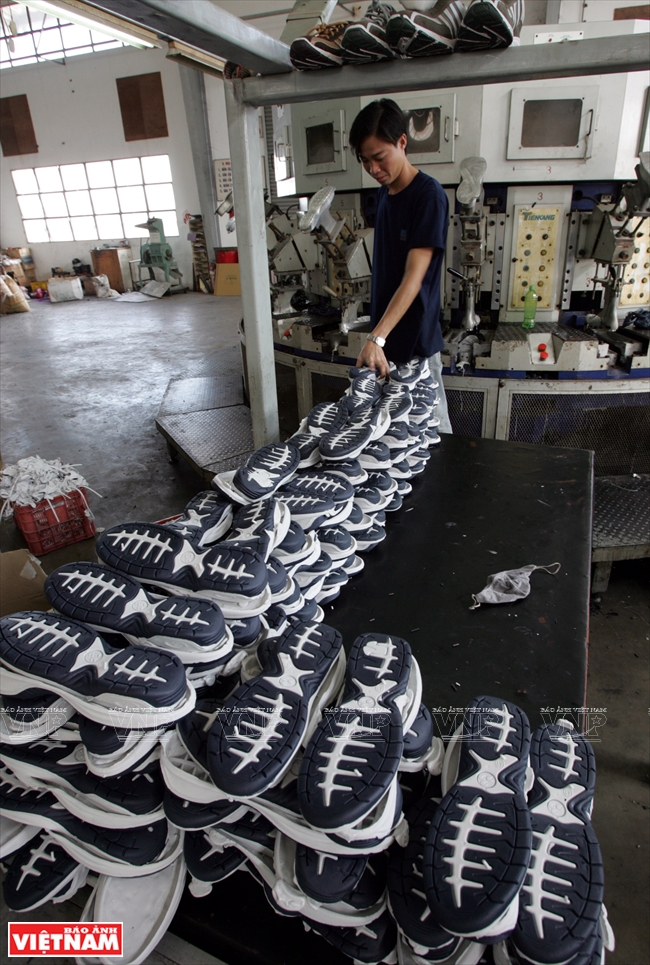
The Vietnam’s leather and footwear will get breakthroughs in TPP. Photo: Trong Chinh

TPP will open the market for Vietnamese agricultural products
but require significant innovations in production and a management mindset. Photo: VNP’s file
The intensification of intellectual property right protection will provide the opportunity
to attract investment in intellectually-intensive areas like pharmaceuticals, especially vaccines. Photo: Viet Cuong/VNP

Measles vaccine made in Vietnam. Photo: Viet Cuong
Though having strengths in agriculture, Vietnam has some agricultural sectors with weak competitiveness,
such as husbandry, which will lead to difficulties when TPP comes into force. Photo: VNP’s file
In terms of economics, the pact will pose a range of challenges to the nation, especially competition pressure in livestock. Although Vietnam has strength in some agricultural sectors, its competitiveness in some sectors is not actually good. These sectors will face the most difficulties after the deal takes effect. The pressure, however, is forecast to only moderately affect other economic sectors since the export structure of TPP economies is more reciprocal than competitive.
Building laws, the constitution and high standards of clear management and conduct of the apparatus of State will pose great challenges to the management mechanism. However, it is one of the standards that Vietnam looks forward building a rule-by-law, socialist State, a state of the people, by the people and for the people with a staff of public servants of virtue, competence and principle.
The increasing competiveness when joining TPP may push State-subsidised enterprises and those with out-of-date technologies into difficulty and even bankruptcy, fuelling mass unemployment. However, most of TPP’s economies do not directly compete with Vietnam so it is expected that the effect is partial and negligible, excluding a few agricultural sectors.
Vietnam will exert maximum efforts to turn such challenges into opportunities to reform the growth model and restructure the economy with special heed paid to agricultural restructuring, production re-organisation and the application of scientific and technological advancements. Vietnam also needs to adjust and amend regulations on trade, investments, bidding, intellectual property, labour and the environment, and take measures to cope with the possible negative impacts on workforce structure by shifting towards areas of its advantages
Building laws, the constitution and high standards of clear management and conduct of the apparatus of State will pose great challenges to the management mechanism. However, it is one of the standards that Vietnam looks forward building a rule-by-law, socialist State, a state of the people, by the people and for the people with a staff of public servants of virtue, competence and principle.
The increasing competiveness when joining TPP may push State-subsidised enterprises and those with out-of-date technologies into difficulty and even bankruptcy, fuelling mass unemployment. However, most of TPP’s economies do not directly compete with Vietnam so it is expected that the effect is partial and negligible, excluding a few agricultural sectors.
Vietnam will exert maximum efforts to turn such challenges into opportunities to reform the growth model and restructure the economy with special heed paid to agricultural restructuring, production re-organisation and the application of scientific and technological advancements. Vietnam also needs to adjust and amend regulations on trade, investments, bidding, intellectual property, labour and the environment, and take measures to cope with the possible negative impacts on workforce structure by shifting towards areas of its advantages
By VNA/VNP
phamtrangnhung

